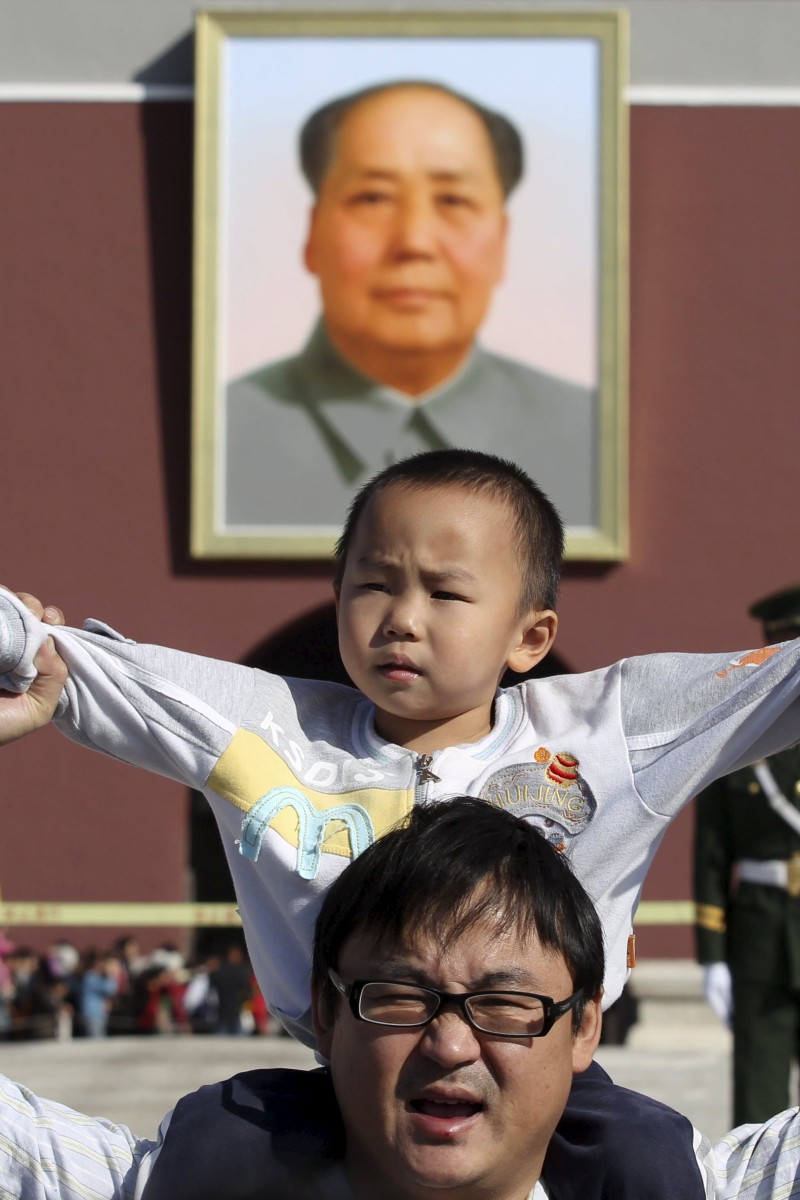 China will ease family planning restrictions to allow all couples to have two children.
China will ease family planning restrictions to allow all couples to have two children.China announced the end of its hugely controversial one-child policy on Thursday, after decades of strict, sometimes brutal enforcement left it with an ageing population and shrinking workforce that has heightened the challenges of slowing economic growth.
All couples will be allowed two children, the official Xinhua news agency reported, citing a communique issued by the ruling Communist Party following a four-day meeting in Beijing.
The historic change was “intended to balance population development and address the challenge of an ageing population”, Xinhua said.
Campaigners welcomed the move, but stressed that a “two-child policy” still meant that China would retain population control mechanisms -- while demographic changes will take decades to have an effect, and previous loosenings led to fewer extra births than expected.
The policy, instituted in the late 1970s, restricted most couples to only a single offspring and for years authorities argued that it was a key contributor to China’s economic boom and had prevented 400 million births.
It was enforced by a dedicated national commission with a system of fines for violators and often forced abortions, leading to heartrending tales of loss for would-be parents.
The policy led to sex-selective abortions or infanticide targeting girls, because of a centuries-old social preference for boys.
Rural families were already allowed two children if the first was a girl, while ethnic minorities were allowed an extra offspring, leading some to dub it a “one and a half child” policy.
As a result China’s population -- the world’s largest at 1.37 billion -- is now ageing rapidly, gender imbalances are severe, and its workforce is shrinking.
The concerns led to limited reforms in 2013, including allowing couples to have two children if either of them was an only child, but relatively few have taken up the opportunity.
Chen Guangcheng, one of China’s best-known activists who fled to the United States in 2012, said “everybody needs to be circumspect” about the announcement, stressing Beijing was retaining population controls.
“They’re still maintaining strict control on something that should be everyone’s right. They need to eliminate it entirely,” Chen said.
Yong Cai, a sociology professor at University of North Carolina, Chapel Hill and expert on the one-child policy, said the change announced Thursday was ”at least 10 years later than it should be”.
“But better than never,” he added.
As the country has grown wealthier, couples have increasingly delayed having even one child as they devote more time to other goals, such as building their careers.
“There’s a lot of opportunity cost to having children. The norm has changed to one or none,” said Joan Kaufman, Director of the Columbia Global Centers East Asia and a long-time expert on China’s population planning.
“I don’t think you’re going to see a massive unleashing of this pent-up desire for children.”
The Chinese public met the announcement cautiously, with many saying the change would only add to the already intense social and financial pressures attached to reproduction.
“I will have four parents to take care of, along with two children,” noted one online commenter. “This is too great a responsibility”.
